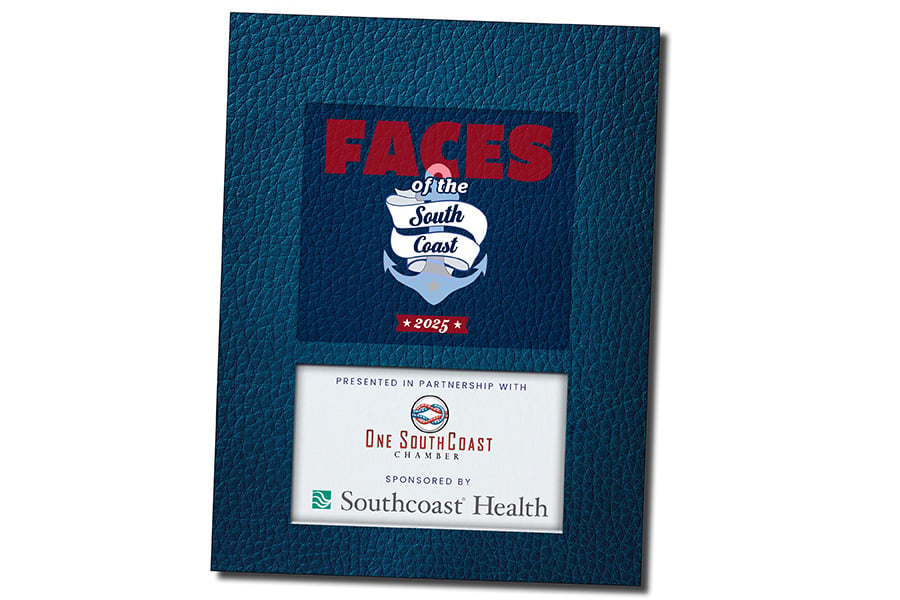Dolores Chef Maria Meza is a James Beard Finalist for Best Chef: Northeast
It is the first finalist nomination for the chef of her family's restaurant where she cooks Mexican cuisine that represents the Mixteca region of Puebla and Oaxaca.

Chef Maria Meza of Dolores (left) shares a toast with her son, Joaquin Meza (middle, behind bar) at Dolores, with Robert Andreozzi of Pizza Marvin (right in front of bar) and Nikhil Naiker of Nimki (left). Photo by Angel Tucker.
Dolores is the Mexican restaurant the Meza family wanted to open sixteen years ago. And for the first time, the matriarch of the family, chef Maria Meza, is acknowledged as a 2024 James Beard Foundation Awards finalist for Best Chef: Northeast. Out of ten Rhode Island semifinalists, Meza is the only chef or restaurant to advance to the next round. It’s a big accomplishment for the family that wasn’t quite sure how the community would react to their more traditional Mexican cuisine which represents the Mixteca region of Puebla and Oaxaca, where they are from.
The Dolores owners first launched the beloved former El Rancho Grande in 2007 in Providence, which closed several years ago, before the pandemic, when a fire damaged the space. They never reopened it and instead focused on launching their second eatery on the East Side of Providence in 2019. Now that ingredients like maize, Mexican peppers, herbs and seeds are more accessible from Mexico into the United States, chef Maria Meza’s cooking more closely resembles what the family grew up eating in Mexico.
Everything is made from scratch at Dolores. The menu lineup includes handmade tortillas, housemade salsas, multiple types of moles, ceviches and hearty stews, because real Mexican food is way more than just tacos (but they have those too). The cuisine focuses on Maria’s cooking, including different types of moles, not just the mole poblano that she’s renowned for. Most of the family works there, including her two sons, general manager Joaquin Meza, who is often cooking alongside his mother in the kitchen, and Marco Meza, who leads the bar program.
“Oaxaca has nine moles,” Maria said in a previous interview. “Mole negro is very different from mole poblano because it has chestnuts and peanuts, but no chocolate and different peppers.” It’s a process that takes days to prep nearly two dozen ingredients, including de-stemming peppers and grinding nuts, peppers and other spices into the paste. They’ll often make more than 100 pounds of mole paste at a time, every two weeks.
The Meza family has a special wood-fired grill for grilling seafood and meats and roasting ingredients, as well as a molino, which is a corn grinder imported from Mexico, which enables them to grind maize for masa for the fresh tortillas. “The molino [corn mill] is what you need to make your moles, process your corn for tortillas, make your masa, turn cacao beans into Mexican hot chocolate,” says Joaquin Meza. “It’s a quintessential part of Mexican cuisine; it’s where everything starts.”
It took a long time for the family to open Dolores, and they didn’t know how the community would receive it, said Joaquin in a previous interview. “We grew up in the southern Mixteca region of Puebla and Oaxaca, and we ate differently. The idea was that we need to showcase that,” says Joaquin. “We didn’t know if people were ready, we weren’t ready…but the more I traveled back to Mexico, the more I thought about cooking more contemporary food, the things we grew up eating, because we missed it.”
Dolores overcame many hurdles since the building where it is located was purchased in 2016. The Meza family worked with investors who bought the space and helped renovate and design the restaurant that has a kitchen upstairs and another prep kitchen in the basement. Before they even opened, it took nearly sixteen months to obtain a liquor license, as its previous occupant, Guido’s, was BYOB. Because Dolores is located fewer than 100 feet from both a church and a school, the owners had to appeal to the General Assembly to be granted the liquor license. Then, less than a year after they opened, the pandemic hit, and they were forced to launch a takeout operation. Wisely, they began packaging takeout non-alcoholic margarita mixes for off-premises consumption (before the state even allowed the sale of takeout cocktails).
The restaurant is named for the Meza family’s paternal grandmother, who the family said goodbye to when they left Mexico in 1992 and traveled to the United States as immigrants.
While it is a whole family affair, Maria has always been the star of Dolores, while her husband, also Joaquin Meza, is also an unsung hero behind the business. Dolores is a testament to his mother. “She was the only grandmother I knew,” says Joaquin, the son. “When I went back to Mexico on a mezcal trip, we walked into this kitchen on the countryside and a lady handed me a tortilla sprinkled with salt, which tasted like my grandmother’s. That was life-changing for me, because it brought me back to my grandmother.”
The look and feel of the restaurant is contemporary Mexican. White walls showcase elaborate Mexican art including Alebrijes, which are the brightly colored Mexican folk art sculptures of magical creatures carved by a small Mexican community of artists on which the Disney movie Coco was based. The embroidered otomi fabric on the lampshades was created by an artist in Puebla, and then Pernilla Frazier, co-owner of Kreatelier, sewed the fabric into lampshades. Colorful lighting fixtures, sconces, plates and serving platters were handcrafted by Hwang Bishop Designs of Warren. The restaurant also makes every effort to teach diners the real meaning behind Cinco de Mayo (the Batalla de Puebla) and Día de Los Muertos, and the decor and environment help tell this story.
It’s a place where Maria Meza has expanded her skills and offers more contemporary Mexican food that’s realistic to her roots. Dolores will also open a second outpost at Track 15, which will be the Providence’s new food hall, located in Union Station, taking over the space that once housed the original Capital Grille, Raphael’s and Bar Louie.
“She’s been an inspiration to a lot of cooks in the industry. She doesn’t realize what she’s accomplished here,” Joaquin said in a previous interview. “A lot of people look up to her.”






























